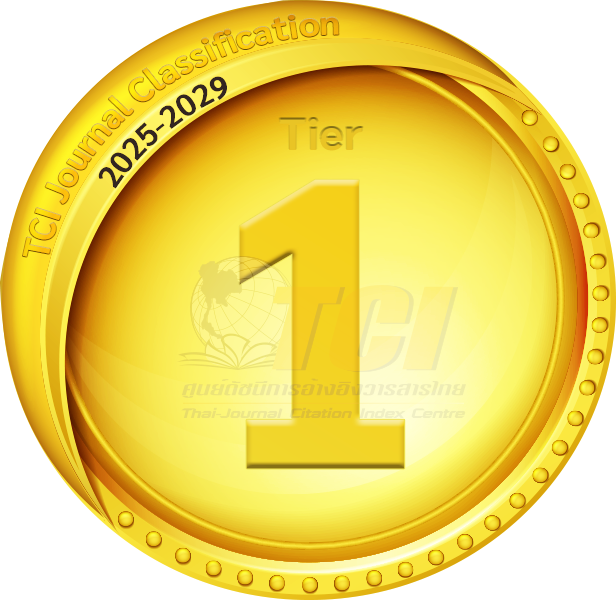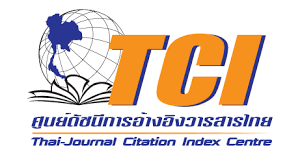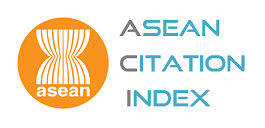Mother Tongue Based Multilingual Education (MTB-MLE): an alternative to Monolingual Education Policy in Myanmar
- Min Layi Chan, Institute of Diplomacy and International Studies, Rangsit University, Pathum Thani 12000, Thailand
- Sasiphattra Siriwato, Institute of Diplomacy and International Studies, Rangsit University, Pathum Thani 12000, Thailand , Corresponding author, E-mail: sasiphattra.s@rsu.ac.th
Abstract
Mother Tongue Based Multilingual Education (MTB-MLE) requires the use of a mother tongue as a medium of instruction to enhance the learning of the students. Most ethnic education stakeholders in Myanmar are asking to implement MTB-MLE in order to provide a better education quality to ethnic community’s students and also to maintain and promote their language and culture. This research aims to examine the long-term advantages and disadvantages of a monolingual education policy and to propose MTB-MLE. Semi-structured interviews were used to collect data in this research. Approximately 13 participants were interviewed. This research found that the majority of ethnic children who are forced to learn and teach in Myanmar, officially recognized as one of two official primary languages of instruction-the other being English, are struggled in learning due to the language barrier. In order to improve education quality and access in Myanmar, MTB-MLE is recognized as an approach provides equal learning opportunity for the community linguistically diverse. Across the globe, international research demonstrates the significant benefits that a focus on MTB-MLE in the early grades brings to education quality and access. This study also points out the benefits of MTB-MLE in term of inclusive education, education quality, and decentralized education system
Keywords: Mother Tongue Based-Multilingual Education, Medium of Instruction, Monolingual Medium of Instruction, Ethnic Education Provider
References
Arisman, A. (2018). Determinant of human development index in ASEAN countries. Signifikan, 7(1), 113-122. http//dx.doi.org/10.15408/sjie.v7i1.6756
Asian Development Bank. (2012). Myanmar in transition opportunities and challenges. The Philippines: Asian Development Bank.
Asia-Pacific Multilingual Education Working Group. (2013). Mother tongue-based multilingual education: lessons learned from a decade of research and practice. Bangkok: Asia-Pacific Multilingual Education Working Group (MLEWG).
Ball, J. (2011). Enhancing learning of children from diverse language backgrounds: mother tongue-based bilingual or multilingual education in the early years. Paris, France: United Nations Educational, Scientific and Cultural Organization.
Benson, C. (2004). The importance of mother tongue-based schooling for educational quality. Sweden: Stockholm University.
Bercasio, R. R. O., Remolacio, L. K. Q., & Reonal, A. M. (2016). Effectiveness of Mother Tongue-Based Multilingual (MTB-MLE) special program in enhancing the competence of pre-service teachers. Rangsit Journalof Educational Studies, 3(2), 1-20. doi:10.14456/rjes.2016.7
Cabansag, J. N. (2016). The implementation of mother tongue-based multilingual education: seeing it from the stakeholders’ perspective. International Journal of English Linguistics, 6(5), 43-53. doi:10.5539/ijel.v6n5p43
Cardenas, M. N. (2018). From policy to local practice: an implementation study of the mother tongue-based multilingual education in the Philippines. New York, US: Columbia University. Doi.org/10.7916/D8HH7XMR
Cryiac, N. (2018). Myanmar struggles to build skilled workforce despite its growing young population. Retrieved from https://ycpsolidiance.com/article/myanmar-struggles-to-build-skilled-workforce-despite-its-growing-young-population
Ethnic Nationalities Affairs Center. (2018). Mother tongue-based multilingual education system in a future federal democratic union of Burma. Chiang Mai: Ethnic Nationalities Affairs Center.
Ethnologue. (2023). Myanmar Summary. Retrieved from https://www.ethnologue.com/country/MM/?fbclid=IwAR3a_0nmihnKKyHnVfPvZPdC_ooh-kWv9G9NMOEIwb0GzJUWNkERuE77Dx0
Gempeso, H. D. P., & Mendez, J. D. S. (2021). Constructive Alignment of Mother Tongue-Based Multilingual Education (MTB MLE) Language Policy Implementation to the Practices of a Multilingual Classroom. English Language Teaching Educational Journal, 4(2), 125-137. https://doi.org/10.12928/eltej.v4i2.4234
Gervais, N. S. & Raynaud, M. (2020). Teaching ethnic minority languages in government schools and developing the local curriculum: elements of decentralization in language-in-education policy. Yangon: Knorad-Adenauer Stiftung Ltd.
Gravers, M. (2007). Introduction: ethnicity against state – state against ethnic diversity. In Mikael, G (Eds). Ethnic Diversity in Burma. Denmark: Nordic Institute of Asia studies (NIAS).
Guest, G., Namey, E., Taylor, J., Eley, N., & McKenna, K. (2017). Comparing focus groups and individual interviews: findings from a randomized study. International Journal of Social Research Methodology, 20(6), 693-708. https://doi.org/10.1080/13645579.2017.1281601
Hayden, M., & Martin, R. (2013). Recovery of the education system in Myanmar. Journal of International and Comparative Education (JICE), 2(2)47-57. https://doi.org/10.14425/00.50.28
Hirschi, E. (2019, May 20). Mon lead the way in mother tongue education. Frontier Myanmar. Retrieved from https://www.frontiermyanmar.net/en/mon-lead-the-way-in-mother-tongue-education/
Hoominfar, E. (2014). Challenges of monolingual education. Ohio, US: Bowling Green State University.
Htet, N. M. (2021). Imagining a mother tongue-based multilingual education for minority ethnic groups in Myanmar. United Kingdom: Manchester Metropolitan University. Doi:10.13140/RG.2.2.24837.06880
Htet, W. Z. (2020). Basic education curriculum reforms in Myanmar and the role of social studies. The Journal of Social Studies Education in Asia, 9, 37-45.
Hunahunan, L. C. (2019). Coping with MTB-MLE challenges: perspectives of primary grade teachers in a central school. International Journal for Social Studies, 6(7), 298-304. https://doi.org/10.26643/ijss.v5i6.6221
Kwok, A. (2019). Lost in tongue: the politics of mother tongue education in Myanmar. Retrieved from https://www.newmandala.org/lost-in-tongue/
Lwin, T. (2021). Challenges and Opportunities for Educational Reform: Under the New Myanmar Government. Social Transformations in India, Myanmar, and Thailand: Volume I: Social, Political and Ecological Perspectives, 175-184. https://doi.org/10.1007/978-981-15-9616-2_11
Malone, S. (2018). Including the excluded: promoting multilingual education. Paris: United Nations Educational, Scientific and Cultural Organization.
McCormick, P. (2019). Language policy in Myanmar. In Andy, K. & Anthony, J.L. (Eds), The Routledge International Handbook of Language Education Policy in Asia (pp.243-256). Routledge.
Meers, E. S., Rasmussen, P. E., Oo, L. M. T. T., & Lian, Z. (2015). Analysis of education services in contested regions of Myanmar. Myanmar: Myanmar Education Consortium.
Michaels, S. (2013). In Burma, a debate over mother-tongue teaching Myanmar law information system. Retrieved from https://www.irrawaddy.com/features/burma-debate-mother-tongue-teaching.html
Ministry of Education. (2016). National Education Strategic Plan 2016-2021. Nay Pyi Taw: Ministry of Education.
Myanmar Law Information System. (2015). The law amending the national education law. Retrieved from https://www.mlis.gov.mm/mLsView.do;jsessionid=99A1755A38720BF0E675A8A4D35EFF14?lawordSn=9714
Ni, L., & Nu, N. A. (2019). Major Factors Leading to out of primary school in Myanmar: A Case study of Non-Formal Primary Education Programme in Dala Township Yangon. 社会科学論集, 156, 141-160.
Paing, T. H. (2019). Mother tongue helps learning in Chin State. Retrieved from https://www.unicef.org/myanmar/stories/mother-tongue-helps-learning-chin-state
Sepulveda, B. R. (1973). The language barrier and its effect on learning. Elementary English, 50(2), 209-217.
South, A. & Lall, M. (2016). Schooling and conflict: ethnic education and mother tongue-based teaching in Myanmar. San Francisco: USAID & The Asia Foundation.
Ting, S. H. (2022). Perceptions of parents and teachers toward mother tongue-based education: A case study of BIDAYUH in Malaysia. KKU International Journal of Humanities and Social Sciences, 12(1), 86-108.
UNDP. (2022). Human development index in Southeast Asia from 2010 to 2020. Retrieved from https://hdr.undp.org/data-center/human-development-index#/indicies/HDI
Wisbey, M. (2016). Mother tongue-based multilingual education: the key to unlocking SDG 4-quality education for all. Bangkok: Asia-Pacific Multilingual Education Working Group (MLE WG).

Indexed in


Search